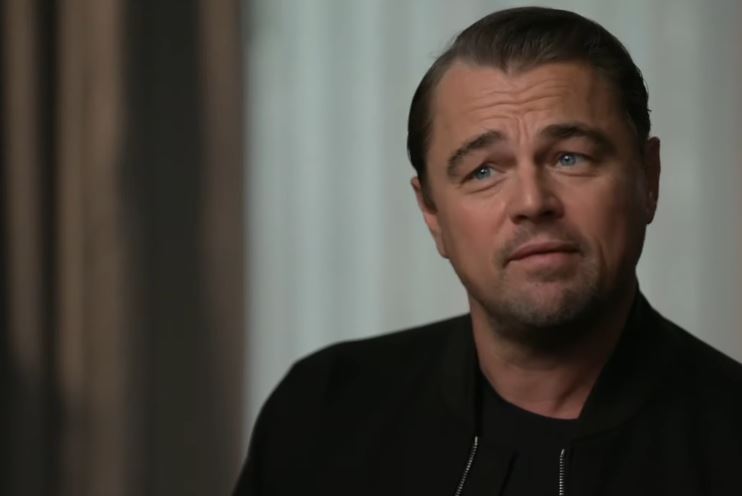The silent disobedience of two parents who disregarded tradition served as the impetus for Leonardo DiCaprio’s filmmaking career rather than a director’s directive. Rather than being prepared for Hollywood, Leonardo was brought up in a modest Los Angeles neighborhood by Irmelin Indenbirken and George DiCaprio to be inquisitive, brave, and fearless in his creative endeavors. His foundation remained intact despite their separation during his infancy. On the contrary, it marked the start of a dual influence that was extraordinarily successful in forming his multi-layered identity.
The discipline of a wartime survivor was brought to the table by Irmelin, a German-born legal secretary. Her early years were characterized by illness and hardship, as she was born in an air-raid shelter during World War II. Through routine, dedication, and unwavering support, she subtly transferred that resilient spirit to her son. Leonardo was exposed to creativity in its most unadulterated form when he was granted access to the alternative art scenes of Los Angeles by George, an independent comic book writer and underground publisher. They fostered a home that was equal parts creative and grounded.
| Leonardo DiCaprio: Personal & Professional Profile | |
|---|---|
| Full Name | Leonardo Wilhelm DiCaprio |
| Date of Birth | November 11, 1974 |
| Place of Birth | Los Angeles, California, USA |
| Parents | George DiCaprio (father), Irmelin Indenbirken (mother) |
| Nationality | American |
| Profession | Actor, Film Producer |
| Major Awards | Academy Award, 3 Golden Globes, BAFTA |
| Notable Films | Titanic, The Revenant, Inception, The Wolf of Wall Street |
| Official Source | Wikipedia |
By the time Leonardo turned three, both of his parents were still actively involved in his life because his father had moved into a nearby home with a new partner. There were only two adults who intentionally co-parented; there were no custody disputes. This arrangement significantly enhanced Leo’s capacity to flourish in non-traditional settings. George invited his son into the artistic chaos rather than protecting him from it. Meanwhile, Irmelin kept the path clear and the lights on.
Irmelin took him to casting calls after long shifts during the early auditions. George reminded him that rejections were stepping stones when he experienced them, as many child actors do. Not even given a line to read, Leo was demoralized by one disappointing rejection. “Don’t worry,” said George simply. It will come to pass for you. And it did.

They took a very creative approach to parenting. George took young Leo to counterculture art events, such as hippie parades where artists spoke poetry and covered themselves in mud, and comic book stores. Three-year-old Leo was escorted onto the stage to perform spontaneous tap dancing for the audience at one such event. Despite being unconventional, those early experiences were extremely valuable. They dispelled fear, boosted self-esteem, and made performance a language of liberation.
Irmelin and George made calculated decisions that enabled Leonardo to drop out of traditional schooling and focus on acting full-time. Even though he eventually earned his GED, his parents’ wager on his creative ability was not only profitable, but it also made history. Leonardo’s breakthrough performance in What’s Eating Gilbert Grape validated his parents’ long-held belief that their son belonged at the forefront of important stories, not just in front of a camera.
The fact that they have been there consistently throughout his career is especially striking. Irmelin was sitting next to Leonardo when he accepted his first Oscar in 2016, and she was clearly moved. She held the trophy that night in a way that only a mother could comprehend, and George later joined them for a private dinner. These were foundational partners as well as proud parents.
George continues to provide career and script advice today. His advice has led Leo to play characters that challenge convention—those who defy expectations, rebel, or straddle the thin lines of human nature. One notable example is the movie Total Eclipse, which Leonardo first rejected until George clarified Arthur Rimbaud’s poetic and political significance. Despite being less well-known, that part was crucial to DiCaprio’s development as an artist.
Conversely, Irmelin has continued to be Leo’s most dependable public ally. Her quiet demeanor speaks loudly at climate change summits and on the red carpet at the Oscars. He refers to her as his hero in interviews, not for show but for his unshakable faith. He turned to the audience during his SAG Award speech and remarked, “Mom, without you, I wouldn’t be standing here.”
Their upbringing produced a unique blueprint: exposure without coercion, support without control. It was incredibly effective despite being highly unconventional. They let Leonardo explore both eccentricity and struggle—guiding, not pushing—rather than protecting him from either. He was able to explore emotionally complex characters and grow into a global advocate for climate action and indigenous rights because of his openness.
They have stayed grounded during all of this. Having previously operated a real waterbed company called Foggy Bottom in the 1970s, George was a natural fit for the role of a quirky waterbed salesman in Licorice Pizza, his most recent film debut. This type of full-circle moment is only possible in a family that values artistic spontaneity.
Leonardo’s parents’ legacy will endure in the upcoming years as he continues to combine activism and filmmaking; it will be evident not in accolades but in his intention. Their influence is woven into his principles, his intuition, and his capacity for curiosity in a field that is frequently dulled by routine. They safeguarded his depth by fostering his strangeness. They also contributed to the release of one of the most introspective actors in cinema by early faith in his vision.
